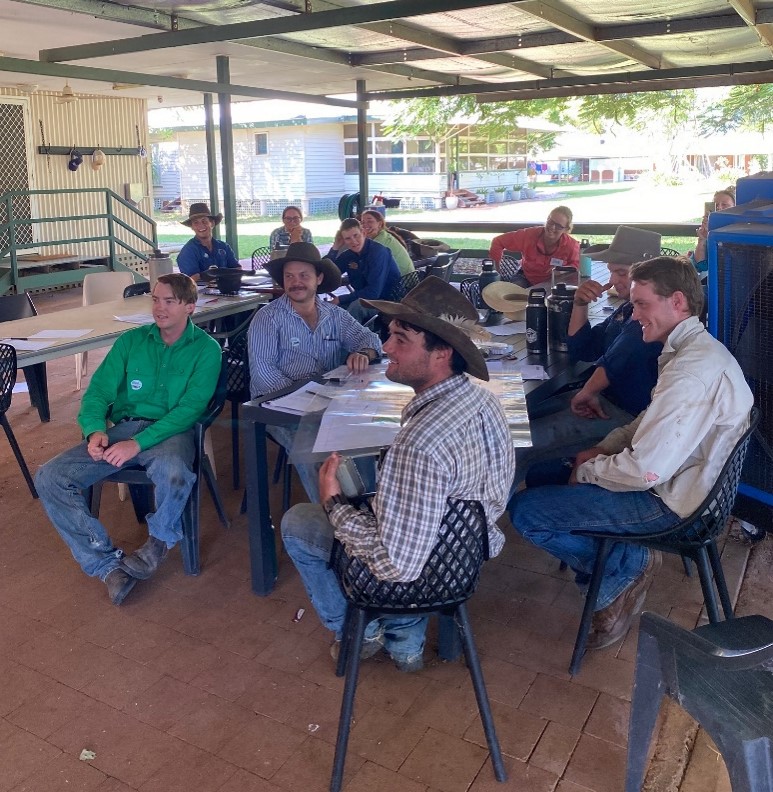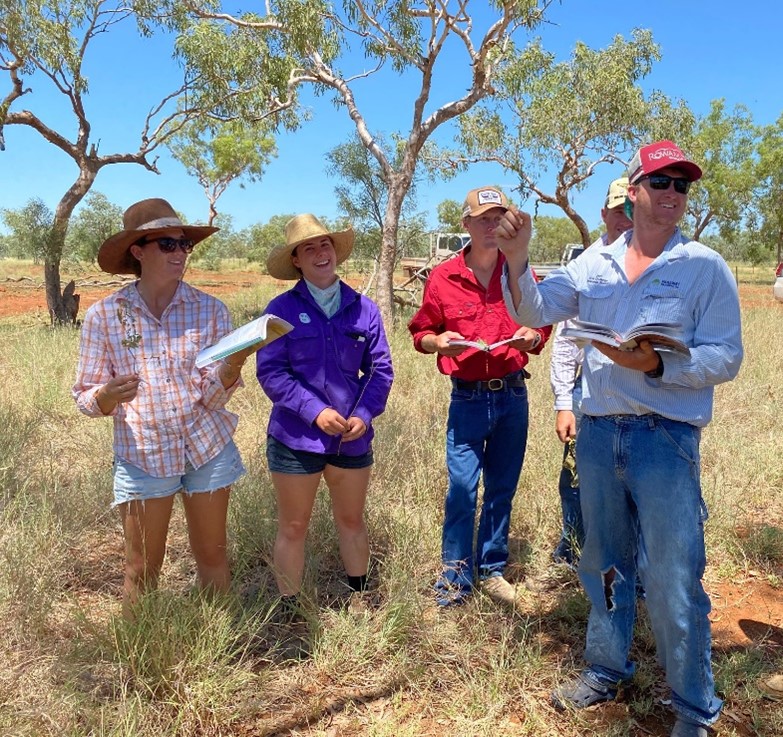Ringers: your paycheques grow on grass, not on trees
The presumed end of the short-lived 2021/22 wet season in the Top End coincided with the Northern Territory Department of Industry, Tourism and Trade (NT DITT) team delivering Rangeland Management Courses across the Barkly Tableland in mid-March. The lack of a decent wet season in some parts of the NT was a stark reminder of the importance of the courses — to educate people who may go on and become the next generation of headstockman, managers and owners on managing rangelands for long-term sustainability and profitability.
Introducing staff to the environmental aspect of cattle management at early career stages is vital for the future of the industry, particularly with the increased awareness towards reversing environmental damage, that may have been caused by poorly managed grazing and drought.

The Rangeland Management Course is a free, one-day, on-property workshop directed towards less experienced station staff. The course provides an overview of a number of topics explaining what influences rangeland condition and how to manage the rangeland/grazing animal interaction. These topics include: pasture dynamics, land condition, cattle nutrition, weeds, poisonous plants, fire management and biodiversity.
The first stop of the March 22’ trip was Lake Nash, set in beautiful and productive country on the NT/QLD border where the Barkly Tableland transforms into the Simpson Desert.
Next was Rocklands Station, followed by Helen Springs on the Barkly Stock Route. Across the three courses, a total of 49 keen participants ranging from first-year stationhands to assistant managers, fired questions and actively participated in discussion. The participants’ curiosity and eagerness were even more apparent during the paddock walks where plant species were identified and their quality as cattle feed was discussed.
Many participants were surprised to learn that a green paddock full of forage doesn’t always produce fat, productive cattle, and how poor grazing management over time can reduce pasture quality and health, therefore degrading the natural asset and its capacity for production.
The poisonous plants topic and the effect of toxins on livestock was also a hit.
When asking each participant at the end of the course for any messages that stuck with them from the day, a standout answer from a fresh-faced ringer was:
“You can make management decisions that benefit both the cattle and the environment, because at the end of the day, [pastoralists and environmentalist] both have the same end goal – a healthy rangeland with lots of biodiversity”.
NT DITT would like to extend a big thank you to the stations that saw the value of introducing rangeland management to their staff. NT DITT is available to deliver Rangeland Management Courses in any region of the Territory. Contact Stacey Holzapfel (08) 8973 9730 or Georgia Glasson (08) 8973 8601 to find out more information or book in a course.
